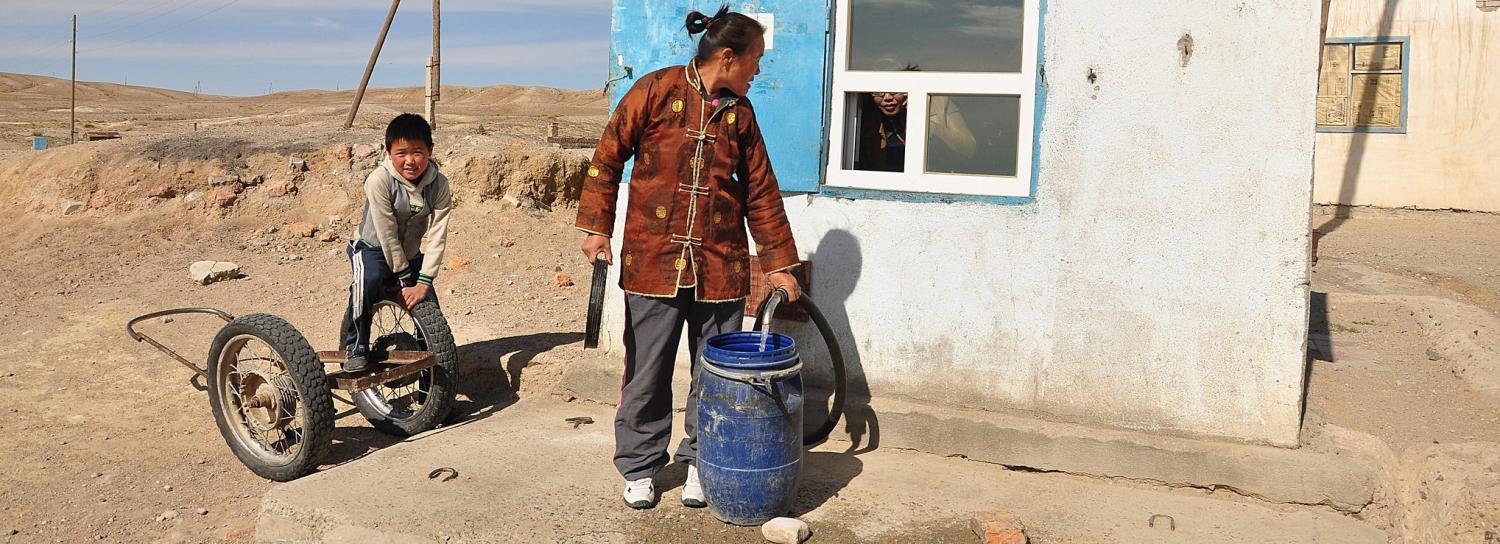The recent Lowy Institute report 'Strengthening the Asian Development Bank in 21st century Asia' is a welcome contribution to the discussion about Australia’s economic involvement with Asia. One challenging topic that needs more attention is the issue of how Australia, a founding member of the Asian Development Bank (ADB) with the fifth largest vote share, can better engage with both the ADB itself and, through the bank, with Asia.
The ADB is a multilateral development bank (MDB): the broad scope of its activities can be conveniently captured by considering the acronym in reverse – BDM – because ADB supports banking, development and multilateral activities.
As a bank, ADB provides finance and knowledge to developing countries in Asia and the Pacific. It has been an effective banker for the region. It has played a key role in times of crisis: it dramatically accelerated its lending, for example, during the Asian financial crisis in 1997-98. And in its work as a financier in Asia, the ADB is more than a bank. It has supported many programs designed to strengthen financial markets in developing countries in Asia, and to bolster banking systems against the sorts of difficulties which caused so much damage during the 1997-98 crisis.
Beyond financial activities, the ADB continues to expand its development role. It emphasises the need for good policies to support successful development outcomes. There is attention to both macroeconomic and microeconomic policies, and also to a wider range of activities including social, environmental and governance goals. In the ADB lending program, there is a strong emphasis on the provision of infrastructure. Expanded infrastructure in developing countries helps promote broad-based economic growth and expand supplies of basic facilities such as clean water, sanitation, roads, and schools.
In the multilateral activities that ADB supports, there are numerous regional programs. These bring together participants from groups of countries – such as from across the Greater Mekong Region or the Central Asian Republics – to discuss cross-border activities.These include such things as road and rail systems, and electricity networks, which strengthen regional markets and promote trade between neighbouring countries. Economic linkages of this sort also bolster economic security in Asia. Countries that have strong mutual economic interests are more likely to be ready to negotiate with each other when tensions arise than resort to conflict to settle their differences.
These banking, development and multilateral activities all reflect Australia’s interests in Asia. They are good reasons for Australia, on the periphery of Asia, to strengthen links with ADB. But Australia’s participation in the bank reflects some of the challenges that exist in its approach to building relationships across Asia. Australia should be an active partner with ADB, but there is a need to back up words with actions. This involves having clear, specific and practical goals for Australian foreign policy, while minimising rhetoric. To be effective, these goals need to be aligned with the goals of partners in the region.
There are lessons for Australia from ADB’s approach in working in Asia. When promoting economic diplomacy in Asia, the emphasis in Australian policy is often on trade. But there is a great need for investment in developing Asia as well. To be an effective partner, Australia could do much more to promote investment flows to developing countries in our region.
Australian policy also needs to demonstrate an appreciation of development goals in Asia. Many countries in the region are still at an early stage of the development process. They will need to promote investment, grow, and strengthen development efforts for many decades to come. If Australia is to have effective partnerships with neighbours in Asia – and be seen as a reliable partner – it needs to demonstrate consistent support for development programs in the region.
A third way in which Australia could strengthen links is by working actively with regional institutions. Australian policy often emphasises bilateral rather than regional relationships in Asia. Australia is not, for example, a member of ASEAN. The case has been made that Australia should consider the implications of such a membership however, short of this, there is a good deal that Australian could do to work more effectively with regional organisations.
Providing expanding resources to ADB and other regional institutions will also be important if Australia wishes to increase Asian engagement. Australia is a wealthy country in a region which still faces daunting economic challenges. If Australia wants to have a seat at the table in economic institutions in Asia, and be recognised as an effective partner, it will be necessary to enter into a proper level of burden-sharing.
The Lowy Institute report also suggests that addressing poverty should remain a priority for ADB. Poverty in Asia is a major problem. But it is hard to get traction in discussions of the issue. The Australian political elite shows little interest, and often Asian elites seem to regard the topic as something of an embarrassment.
But whether priority is to be given to tackling poverty or to broader issues, for Australian economic diplomacy to be effective in Asia, a broader strategy of engagement will needed. It is likely the remarkable economic transformation which has now been underway in the region for 70 years will continue for much of the coming century. A major challenge for policy makers in Australia is to strengthen the ways in which Australia can join in this transformation.
